This is going to be a different type of post compared to my usual term reviews. This semester was my exchange semester! I want to dive into the specifics of exchange and give practical advice to UWaterloo students who are considering exchange or are going through the planning process. I certainly felt a bit lost when I applied and was working through the logistics; I hope that this post can provide a little bit more clarity!
Why did I do exchange?
When I first started UWaterloo, I had heard about exchange from a few upper years but it wasn’t as popular back then. I had heard some positive things about exchange but never really thought about it too seriously since I thought I could delay thinking about the opportunity until my second or third year.
And then COVID hit.
With COVID-19, the entire exchange program was put to a halt. I also started my statistics minor in earnest during the pandemic period. The uncertainty of the pandemic combined with my doubts about completing a statistics minor made the decision pretty easy in my head: no way was I going to do exchange.
However, as the world started to slowly open back up in my 3A term, I started to mull over going on exchange again. This time, I actively did some research and found out some pretty positive news:
- Your grades during exchange don’t matter: UWaterloo has made it exceptionally easy for students to take exchange by simply having a pass/fail requirement for all courses.
- I could double-up one of my final statistics courses for an ATE: Previously, the STAT 44x course that I wanted to take couldn’t be used for an ATE slot in my SE program. However, after some persuasive emails sent to my director, I managed to get the course approved for an ATE, making it possible to complete my statistics degree even if I didn’t take a statistics course during exchange.
At this point, exchange made a lot more sense to me. However, I was late to apply for exchange in 3B (my 3B was Fall 2022, so I needed to apply in Fall 2021, which I wasn’t aware about) which bummed me out. However, my explorations of switching the final SE co-op from fall to summer shed light on a major loophole in Waterloo’s system: SE students can ask for exchange semesters to be held during a regularly scheduled co-op term, forcing you to take the co-op semester at a different time. Many SE students used this loophole to force the 6th co-op to be shifted to the summer and do an exchange semester in the fall, including me.
My reasons for applying to exchange weren’t the best; I was simply trying to get a 6th co-op during the summer. However, now that the SE program has changed to accommodate flexible co-op sequences in the final year of the program, people no longer have to use exchange to get a final summer co-op.
Looking back at my exchange experiences, I think the following would be important criteria to use if you are considering exchange:
- Are you comfortable living in a completely different country, potentially with zero friends: Moving to a different country and restarting your social circles is admittedly not for everyone. We love to idolize travelling and experiencing new things, but let’s be cognizant that it’s stressful for many people and if you feel like you cannot take that level of stress, then it might not be for you.
- Do you have sufficient capital to enjoy exchange: Exchange is not cheap. Not only do you have to consider the costs of living in a different country, but food costs, travel costs and more will add up. I budgeted around 10k USD for my exchange and this was more or less accurate.
- Are you willing to accept tradeoffs of doing exchange while grinding on job apps or grad applications: Many of my friends had to sacrifice on various parts of their exchange experience to prepare for job interviews and graduate school admissions. Fortunately, they all knew what they were in for, but understanding that this can limit your travel/exchange experience is crucial for making a good decision. I have a personal opinion on this, which I will elaborate on this section.
- Are you willing to embrace a totally new culture: I was downplaying culture shock heavily when I was going into my exchange semester, but believe me, it’s a real thing. If this is something that intimidates you, I would recommend doing short travel trips to different countries first before embarking on an entire exchange semester. Working up your cultural competency is pretty crucial for a successful exchange semester.
By all means this is not an exhaustive criteria list. You may have a different list and different stack rank of important considerations, but what is most important is doing your research first and going through a structured decision making process before going with any choice.
I want to flag one important consideration: be wise about peer pressure. While doing exchange with your friends is certainly not a bad thing, please don’t get swept away with your friends’ decisions about exchange! Everyone will have a different perspective of exchange, so make sure that you are doing right by you, and not doing exchange for someone else.
How to prepare for exchange?
Planning before exchange applications
When should I start planning for exchange?
My recommendation is min(whenever you think exchange is good for you, 1 year). If you think exchange is a good opportunity for you and you are in first year, start planning ASAP. The earlier you prepare, the easier the process is. There are way too many moving parts in Waterloo’s exchange program that they don’t even mention to you about (such as course mappings), so planning early is best. Furthermore, you want to put in your exchange application 1 year before you expect to go on exchange. This gives you the best chance of matching with your host school. Any later, and the most competitive schools will have spots taken up.
Step 0: Plan out your academic course progressions
This is a meta-tip for university, but you should have a course progression spreadsheet that outlines exactly when you are taking the courses you need to graduate. Knowing this in advance gives you the structure to make exchange decisions.
Step 1: Figure out which term you want to do exchange in
Most students choose to do their exchange semester in 3B or in 4A. Here are some questions to think about when choosing the best term to do exchange:
- What courses are unable to be mapped to exchange courses: There are certain courses in Waterloo that must be done in Waterloo and cannot be done during exchange. A common example for engineering students are FYDP courses. Talk to your academic advisor to figure this out. Make sure that you are not doing exchange during these semesters.
- What courses do you want to “escape”: Because of the pass/fail rules for exchange courses, many students try to map an exchange course to their hard courses offered in certain semesters as a way to “escape” the course and not have to worry about marks. A common example for SE students is to find a SE 380 equivalent during exchange. These exchange courses may only be offered in certain semesters, so consider this when planning
- Consider your co-op/full-time: For SE students, 3B is a time for their final and most important recruitment cycle, while 4A is a new grad recruitment cycle. Consider which recruitment cycles you would be OK doing while you are on exchange.
- School availability: Some exchange schools do not offer exchange in all semesters.
There are plenty of other criteria to consider, but I believe these are the most universal criteria for most students.
I personally chose to do 4A, mostly because I had no choice. However, if were to go back in time, I would still choose to do my exchange in 4A for a few reasons:
-
Philosophy on “escaping” courses: I personally don’t really care about making school “easier”; I care about the quality of my education. I was excited about the challenge of taking SE 380 and CS 343 and didn’t find much appeal in trying to substitute them for easier courses. A large part of these “hard” courses are very fundamental to my knowledge as a software engineer and wouldn’t want to avoid them. Even though 3B has a few tough courses, I am glad I did it at UWaterloo.
-
Recruiting: In my opinion, your most important recruiting cycle is your final-year internship recruiting cycle for the following reasons:
- Can obviate new grad recruiting stress: If you recruit correctly, you can potentially work in a company that you really like and get a return offer. If you have a return offer at a great company that is paying top-of-the-line compensation, then new-grad recruiting is way less stressful as you always have a Plan B. This is why it is incredibly important to recruit at high quality companies in your final year, as it could be a potential first step in your professional career.
- Leverage: Let’s say in the worst case that your final year internships made it clear that these are companies that you don’t want to join for full-time. If that is true, your high quality internships will make you a lot more competitive in the job market and you will have an easier time recruiting for new grad opportunities and you may be able to negotiate.
These two points made it dead obvious to me that I should protect my 3B term from exchange distractions and do exchange in 4A. In my case, I didn’t have to recruit too heavily during new grad anyways as most companies were not negotiating with the return offers that I possessed. Since I wasn’t getting any better offers than what I got and I really like the companies I had offers from, my new grad recruiting cycle was a lot easier to handle on exchange.
Step 2: Figure out which school you want to do exchange in
Here’s how you are matched with an exchange school:
- Attend an exchange information session: staff will explain how exchange works for Waterloo students and will give you access to an internal portal
- Inspect the internal portal: The internal portal is where you will get information regarding each exchange university, including its degree of competitiveness.
- Rank your university choices: Choose n universities and submit an application. The written details in your application don’t matter too much; your grades and the ranking of your universities is what really matters.
- Wait for match day
Here are some criteria to consider when choosing your host university:
- Travel: If you want to travel a lot during your exchange semester, it pays to be in a travel hub city
- Language: Certain countries (eg. Spain, Korea, Japan) do not have a high level of English proficiency, so you will need to know the local language.
- Time zones: if you need to make regular phone calls to North America for whatever reasons (i.e recruiting) you may have, you should strongly consider how easy it will be with your school’s time zones. In my opinion, European time zones are a lot easier to map to North American time zones compared to Asian time zones
- Semester length: some schools have semester lengths that may be incompatible with UWaterloo’s schedules. This is especially important for people doing exchange in their 4A semester, as this may result in your exchange grades being sent late to UWaterloo, which could delay your graduation.
- Culture: some schools, like ETH Zurich and Singaporean universities, have a very similar culture compared to Waterloo. Others, like Dundee, are not like Waterloo at all. Some people want to go to a different university with a different culture; others don’t. This is a personal preference.
- Commuter schools: It is a lot easier to make local friends with non commuter schools. Speaking as someone who went to UC3M (Universidad Carlos III de Madrid), which is a commuter school, it is much harder to make local friends compared to living in a dorm with a bunch of students.
- Friends: If you are going on exchange with Waterloo students, you might want to plan on going to the same university together. This offers several benefits, including have a pre-established friend group that you can go on adventures with, study partners, easier accommodation hunting and more.
- Degree of difficulty: Some schools, like ETH Zurich, are renowned for being as tough as UWaterloo. If you care about academic rigour, then go for it! Other schools, like UC3M, are definitely a lot easier than UWaterloo, which might make your exchange experience more enjoyable.
- Competition: Certain schools, like Singaporean schools, are very hard to get into as they have limited spots available. You may need to think about whether it is worth shooting your shot at a competitive university when you only have a limited amount of shots.
- Cost of living
- Climate
As you can see, there are a host of considerations when choosing your exchange school. In my opinion, here’s how you should approach this:
- Choose 3-4 schools that pass your initial criteria list
- Look into courses: Try to plan out exactly which courses you would want to take at your chosen universities and plan out the rest of your academic schedule. This is a great forcing function for dropping potential choices
- Stack rank: This is a completely personal choice, there is no right decision or another. But having multiple academic schedules already in place along with carefully considering all the criteria above will make this process a lot easier.
I personally went with UC3M in Madrid because I wanted to explore more of Europe and felt that exchange would be the best time to immerse myself in Spanish culture. It also helped that UC3M is known to be a relatively easy university and that I only had to take 2 courses, along with the fact that Madrid is a travel hub.
Planning after school selections
Step 3: Visas
As soon as you have matched with a university, you should start figuring out the visa processes for living in your host country and travelling during exchange. The Canadian passport is quite strong when travelling, but living in a country may require special residence visas. These visas may take some time to process, so it is best to start as early as possible.
Step 4: Accommodations
If you are going to a commuter school, you will need to figure out your own accommodations. I would recommend beginning your search 3-4 months before you arrive in your host country. Things to look out for include:
- Travel time to your university and the closest airport
- Nearby public transport, grocery markets, etc.
- Reliable hosts
Step 5: Courses
3-4 months before you begin your exchange, you should meet with your academic advisor to figure out which courses you can take during exchange. I would recommend building a spreadsheet which clearly maps your chosen UWaterloo course to the exchange university courses with links. For SE, the advisors were quite liberal in creating mappings between courses, so you don’t need to worry about having exact matches with your exchange course. I would also recommend trying to take as few courses as possible while you’re on exchange (2-4 is ideal). If travelling, exploring and potentially recruiting are priorities for you, then you want to lessen your academic load as much as possible without sacrificing your future academic plans.
-(1)-(1).png)
Another tip that I found out was try to take 1 or 2 online courses at UWaterloo while you are on exchange. Online courses are not too demanding and the more easy courses you can knock out while you are not in Waterloo, the better.
Step 6: Places to visit in the first month of exchange
You may want to start planning (but crucially, not booking) trips that you want to take early in the exchange semester. Knowing this can help you plan out when you want to arrive in your host country. For example, my friends wanted to go to La Tomatina in Spain before the exchange semester, so we made sure to plan our travel to Spain accordingly.
My principles during exchange
As exchange inched closer and closer, I planned how I wanted to spend my exchange semester. This was a unique opportunity for me so I wanted to make sure that I made the most out of the experience. Here were some of the principles I followed:
Principle 1: Immerse yourself
There are very few times in life when you can leave the comfort of your own home and live in a completely separate part of the world for a few months. I knew that I would kick myself if I didn’t use that opportunity to embrace Spanish culture and live like the locals. Here are some tips I learned while in Spain on living like the locals:
- Speak the language: I learned a bit of functional Spanish that helped me order food at restaurants, pick up food at grocery stores, or get help at airports/train stations when I needed it
- Learn the history: I spent a lot of time learning about Spanish history before I went on my exchange semester, such as al-Andalus, Spanish Civil War and the history of various separatist movements
- Eat and party like a local: Many Spanish people like to go out by doing tapas crawls, which I found to be great fun and really pushed my Spanish knowledge. Drinking several glasses of wine and beers along with consuming inordinate amount of tapas is a really great way of exploring Spanish culture
- Travel locally: I made sure to use a large chunk of my travel time to explore the Iberian peninsula given how easy it is to travel out of Madrid. Out of the 11 trips that I did this exchange semester, 7 of them were in Iberia or surrounding islands.
Principle 2: School is not a priority
With pass/fail, I made sure to spend as little time as possible in school in order to explore Europe because it truly didn’t matter if I got a 90 in a course or a 60. To do this, I made sure to select courses that are not time consuming, don’t have attendance requirements and have classes in the middle of the week (this way, I could spend more days of the week travelling). I ended up picking 3 courses and dropping one. Even with the courses I chose, I strategically only tried for exams, because I knew I could pass the entire course by just focusing on doing my exams really well.
Fortunately, the level of difficulty of UC3M allowed for these shenanigans. If I was in a different university, I could not have done the same.
Principle 3: Optimize for unique travel experiences
As I was travelling around Europe, the number one thing I heard from older travel buddies was how lucky I was to be young and travelling. I realized that my youth enables a lot of different travel experiences that I might not be able to do when I am less physically fit or when I have dependents. Given that, I made sure to include some wild experiences, such as:
- Skydiving in Switzerland
- Physically demanding hikes in Madeira
- Exploring nightlife in most places I went to (highlights are Basque Country, Florence, Madrid and Granada) despite the fact that I am not the biggest nightlife fan
- Solo travelling in Florence, Madeira and Andalusia
Given these principles, I had constructed my plan for things I wanted to do during exchange. It certainly clashed with what my friends wanted to do, but I made sure to enshrine these principles on my travels and live to them as authentically as possible.
School during exchange
Cryptography
I took cryptography to satisfy my ECE ATE requirement. I didn’t really know much about cryptography asides from the small amount of RSA we learned in MATH 135 but I kept bumping into cryptography concepts as I learned more about software engineering, such as certificates, TLS, SSL and more. I thought it might be worthwhile to know some of these cryptography concepts especially as the world sees more cyber security threats.
Here were the concepts we learned in this course:
- Mathematical foundations: modular arithmetic, primitive root generators, Galois fields, elliptic curves
- Classical cryptography: transposition and substitution ciphers
- Symmetric encryption algorithms: stream ciphers (LFSR) and block ciphers (AES, DES) along with cryptographic operation modes
- Asymmetric encryption algorithms: RSA and Diffie-Hellman
- Hash functions, MAC functions, and authenticated encryption
- Digital signatures: RSA signatures and ElGamal signatures
- Public key and certificate infrastructure
-(1).png)
.png)
Overall, I learned a good amount from this course. The course had 4 labs which were not marked, 2 midterms covering theory and a final covering concepts learned in the lab. This was a pretty pleasant course and was quite easy to do alongside the exchange travel. I really don’t have many tips specific for this course; just using the notes provided by the instructor and doing labs whenever you can worked well for me.
My lab code can be found here. Notes can be found in my usual notes repository.
Peace Engineering
This was the course I took to satisfy my List A elective. It was supposed to teach us how to use our engineering skills to create solutions for peace in the world through the use of guest lecturers and exploring case studies. The course had no exams, had a 2 easy assignments to be completed in class and a final project with attendance gradings.
Honestly, I learned very little in this course. The lectures were extremely boring and much of the content was not novel. I mostly chose this course because it was easy and there was only 1 2-hour lecture a week on a Tuesday, which wouldn’t conflict with my travels. If you are looking for an easy UC3M List A elective, then this is it.
SCI 238: Astronomy
I took this course online for this semester since I needed to finish up my science electives before I graduated. The course goes over your classic introductory astronomy, including astronomical math, solar systems, and galaxies. Students are marked on quiz submissions and written assignments.
The course load is very doable on exchange since I didn’t really study for the course; I only did quizzes and assignments. In fact, I speed-ran the course and finished it by October, leaving me November and December to forget completely about it. I would recommend this course if people are looking for online science electives.
Spanish
I initially signed up for a beginner Spanish course at UC3M because I wanted to get better at Spanish. I had to pay roughly €200 to enter the class, but I soon realized that the class would not be a good fit for me for a few reasons:
- It conflicted with my travel schedules as I needed to be in-person on Mondays, which I when I would usually return back to Madrid from my trips
- I didn’t really like the learning style, as the teacher mostly spoke in English when teaching Spanish
I dropped out of this course in 2 weeks. This was an expensive mistake on my part. Be doubly sure if you want to take extra courses that require money when you are on exchange.
Travelling during exchange
Travel was a top priority for me during exchange because it was a golden opportunity for me to explore Europe while taking advantage of cheap flights. I’ve detailed out my travel journeys outside of Madrid in the travel section of the blog (Valencia - Andalusia). Here are some of the things I did in the Madrid area:
- Sol
- Palacio Real
- El Retiro
- Art museums: Prado (really dope classical art museum), Reina Sophia (best modern art museum I’ve been to so far)
- Casa de Campo
- Cava Alta (for tapas crawls)
- Segovia
- Toledo
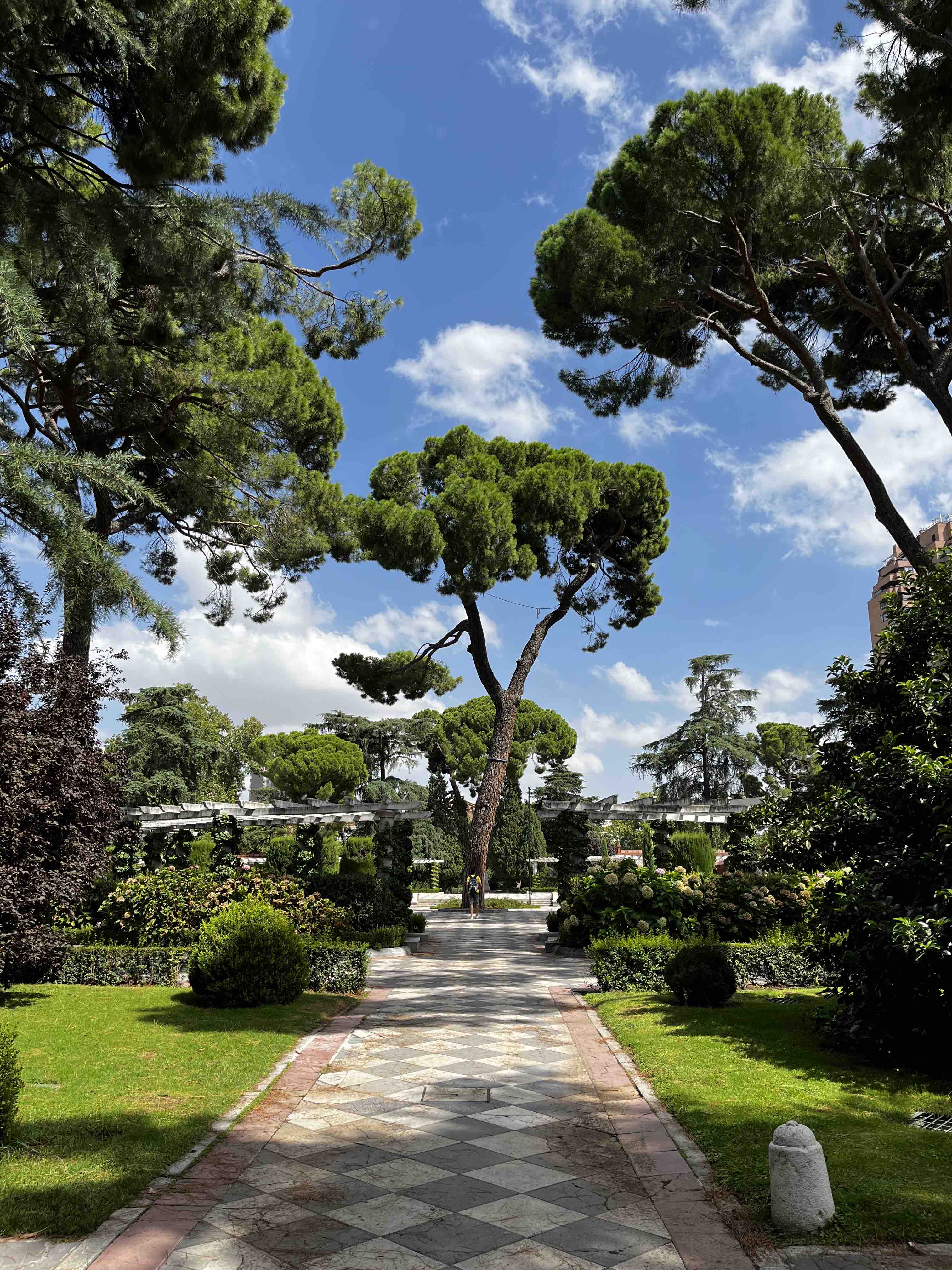
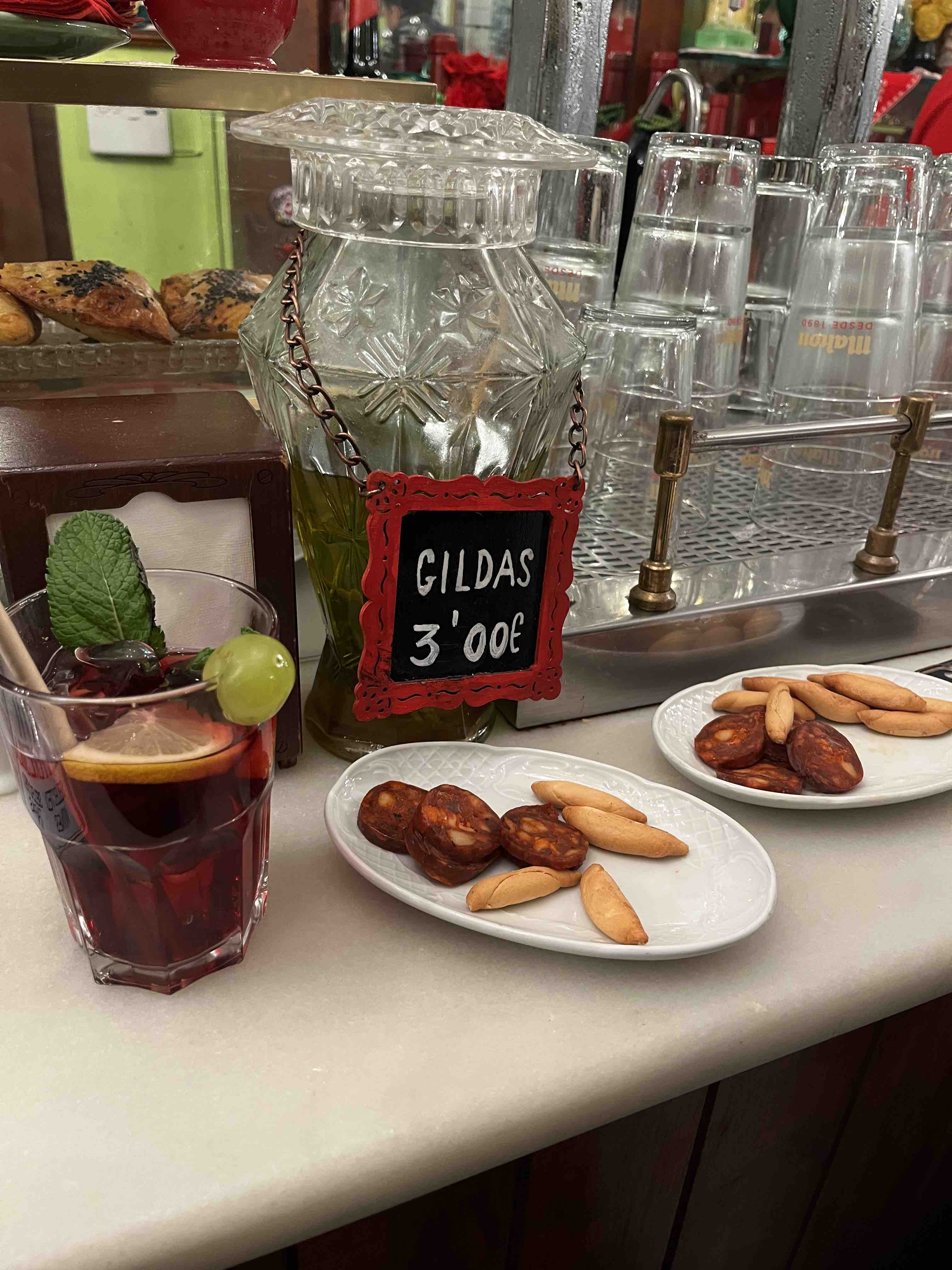

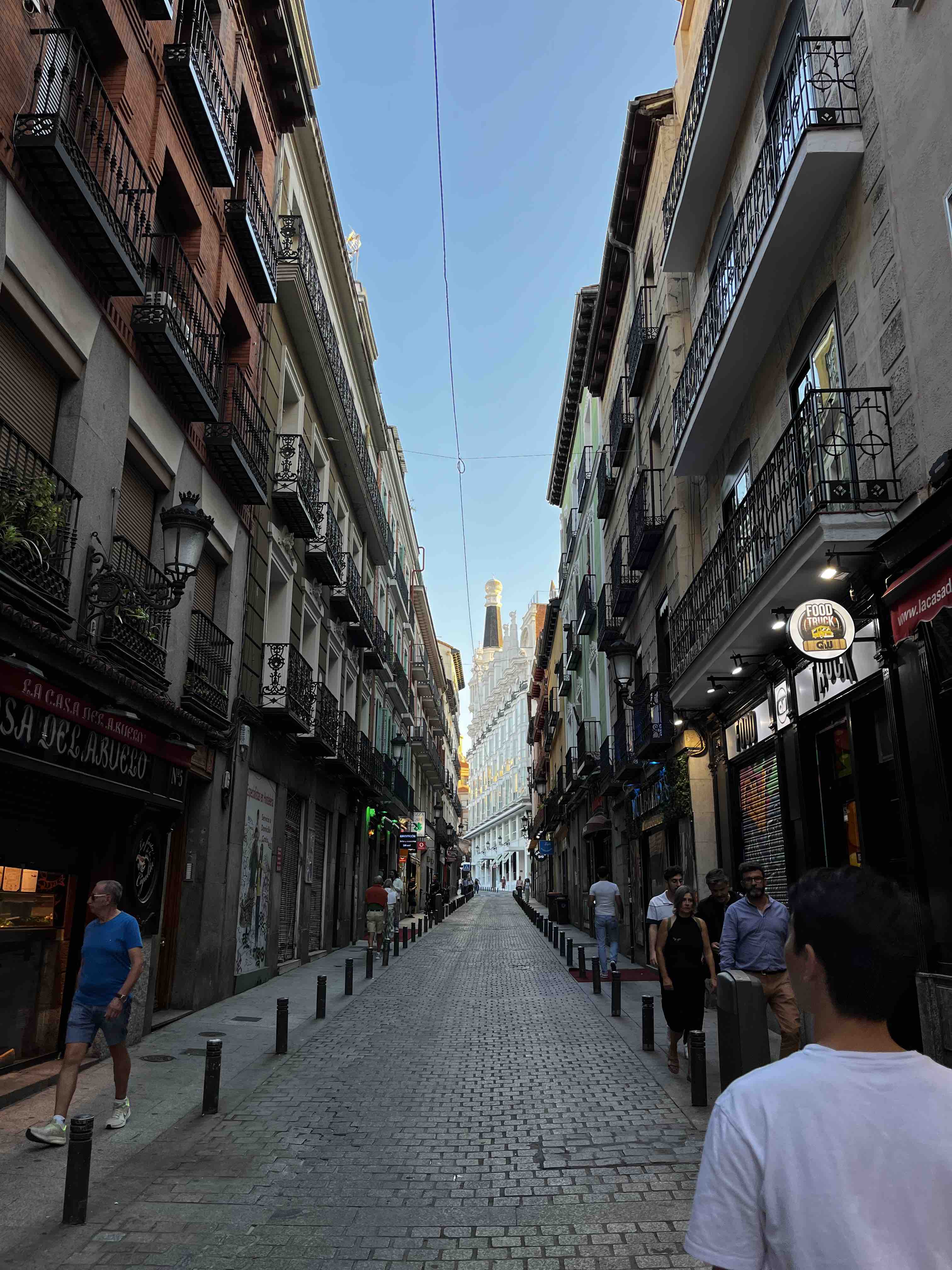
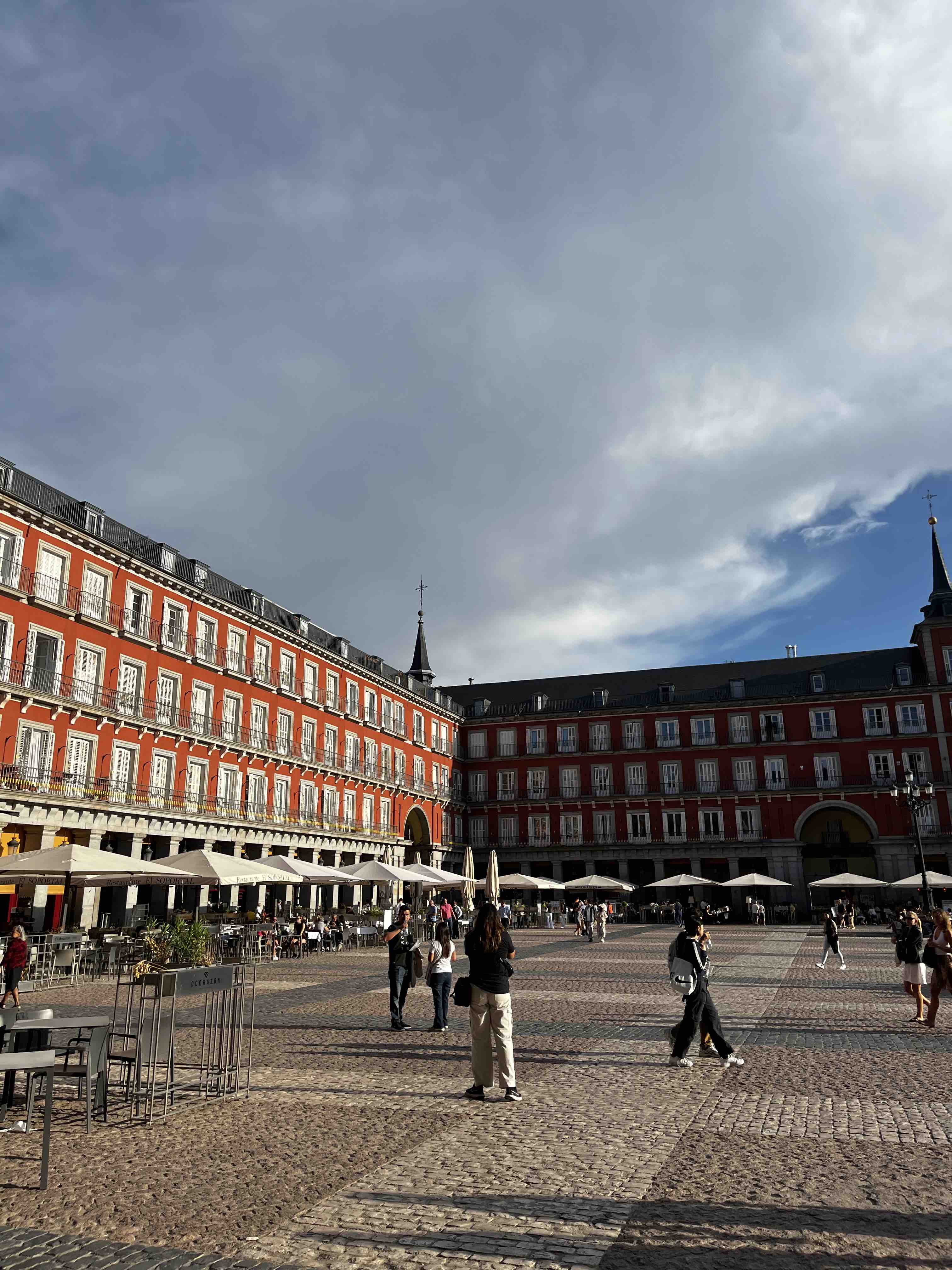
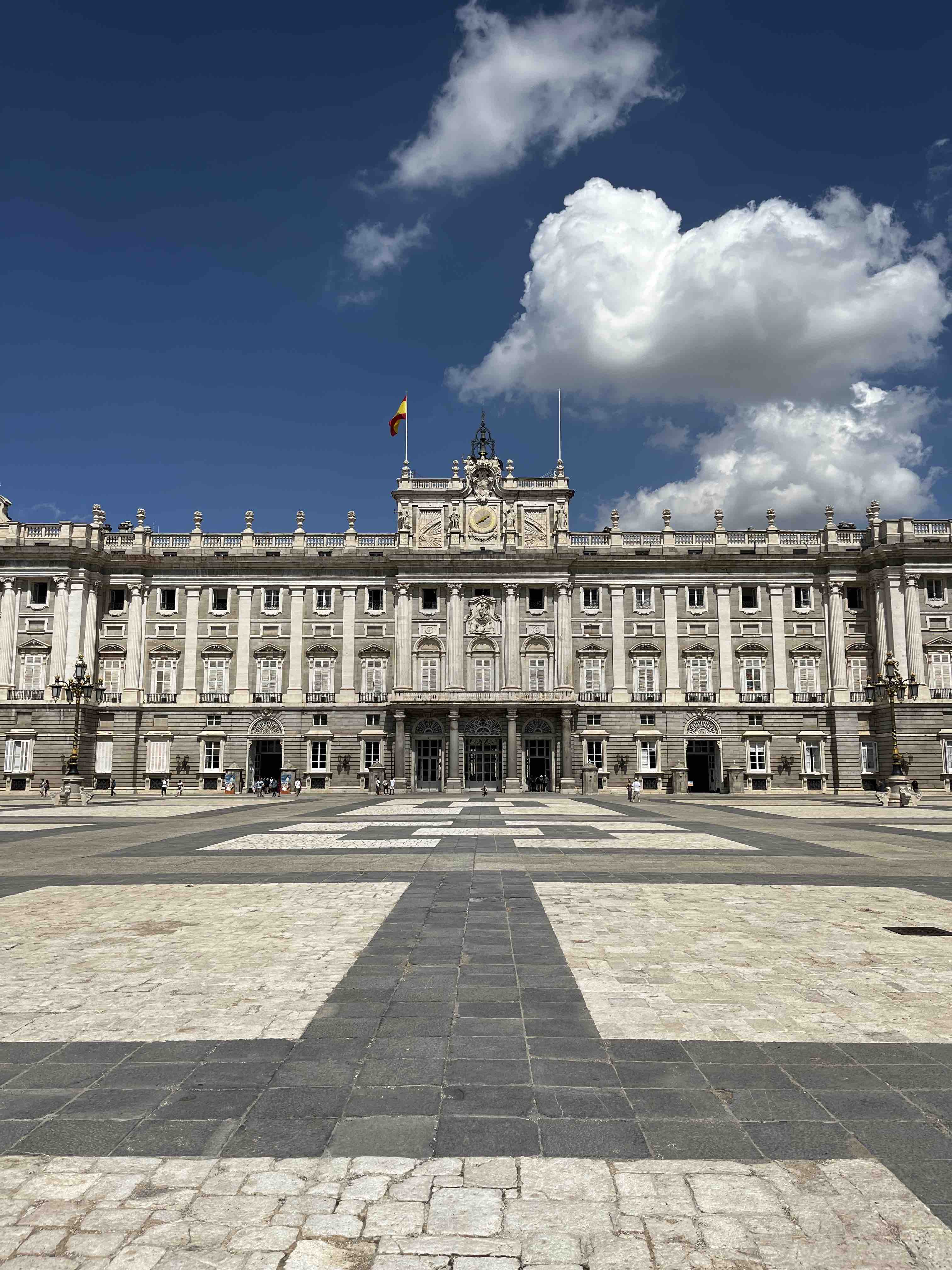
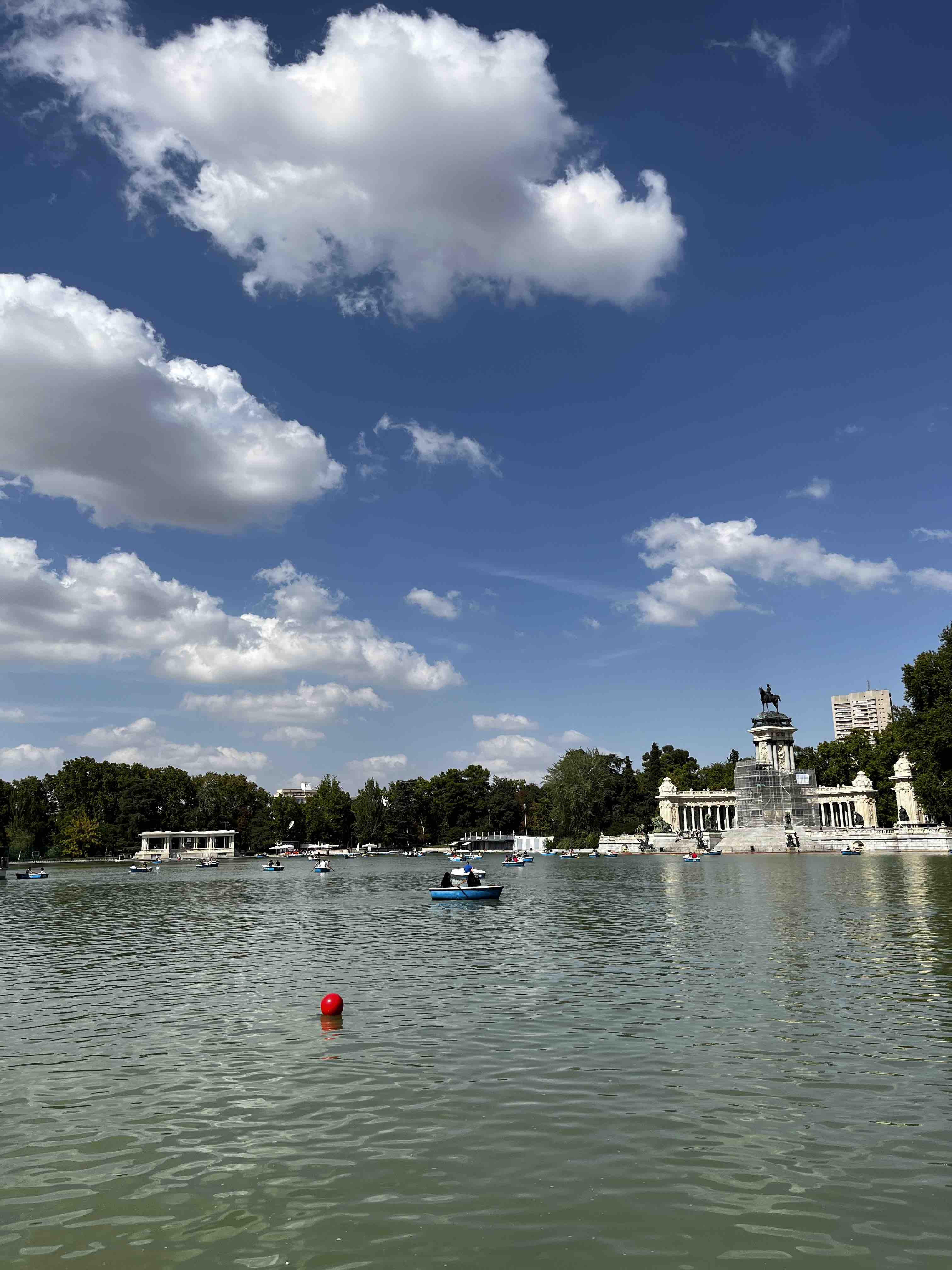

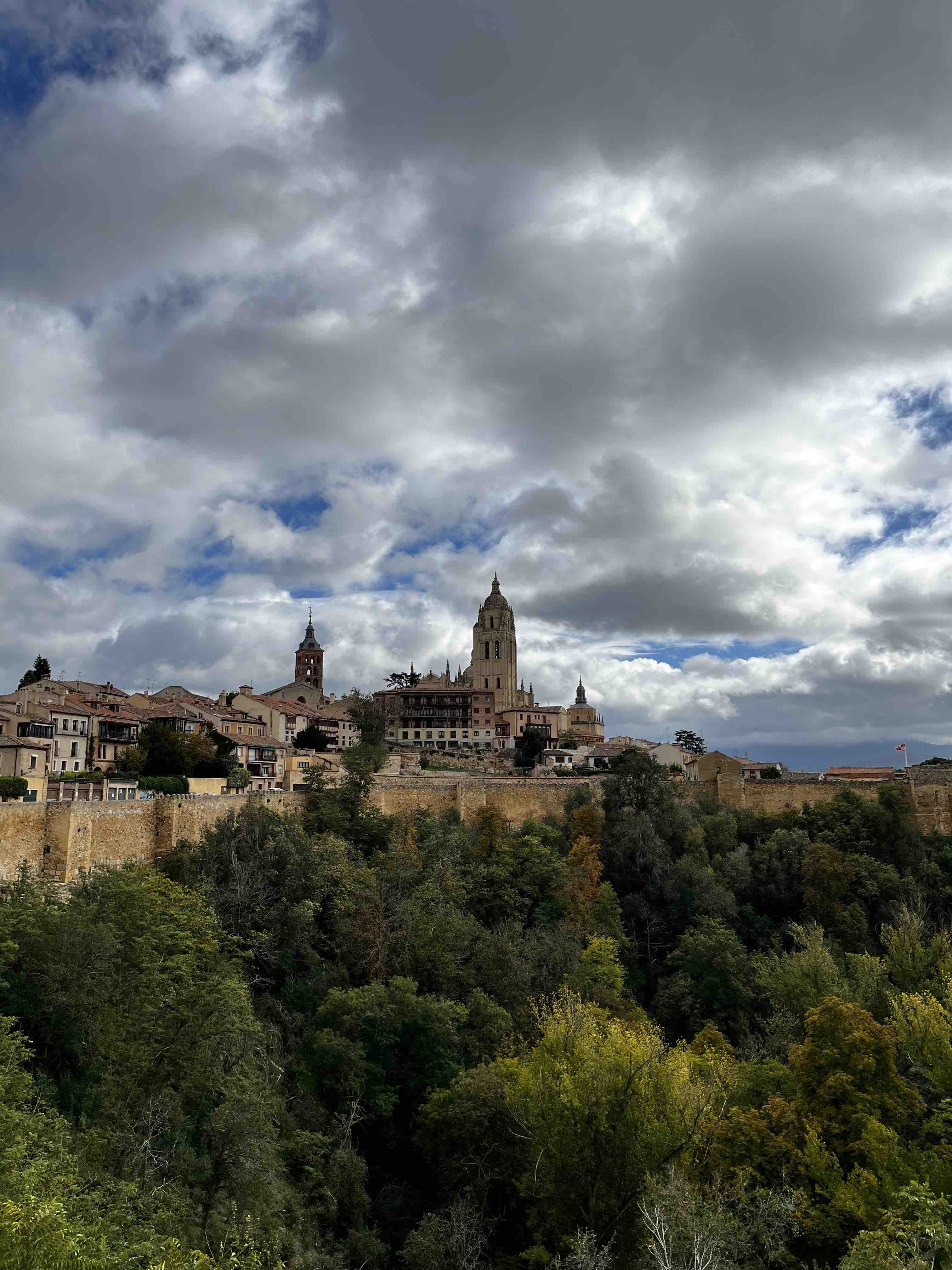
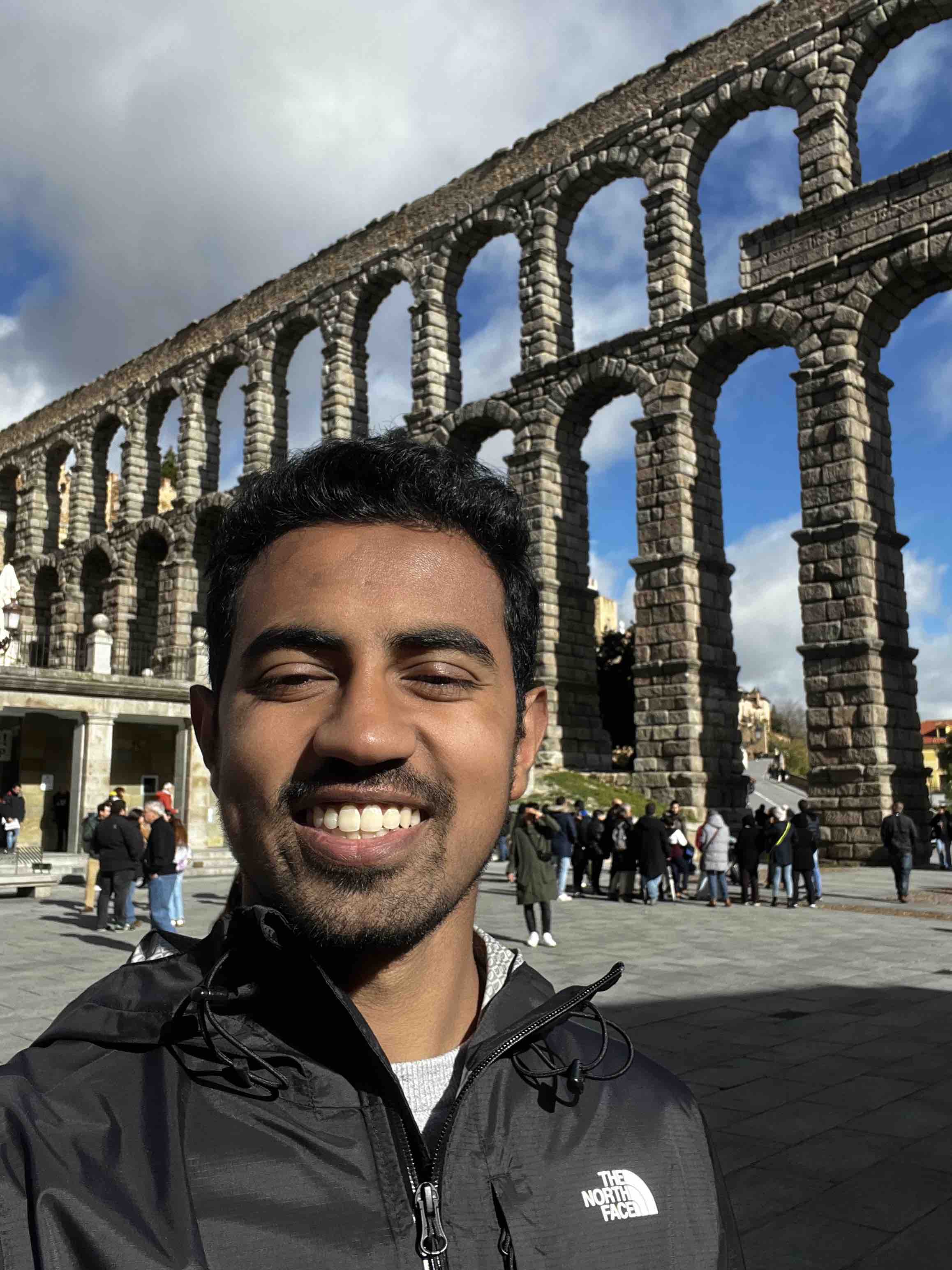
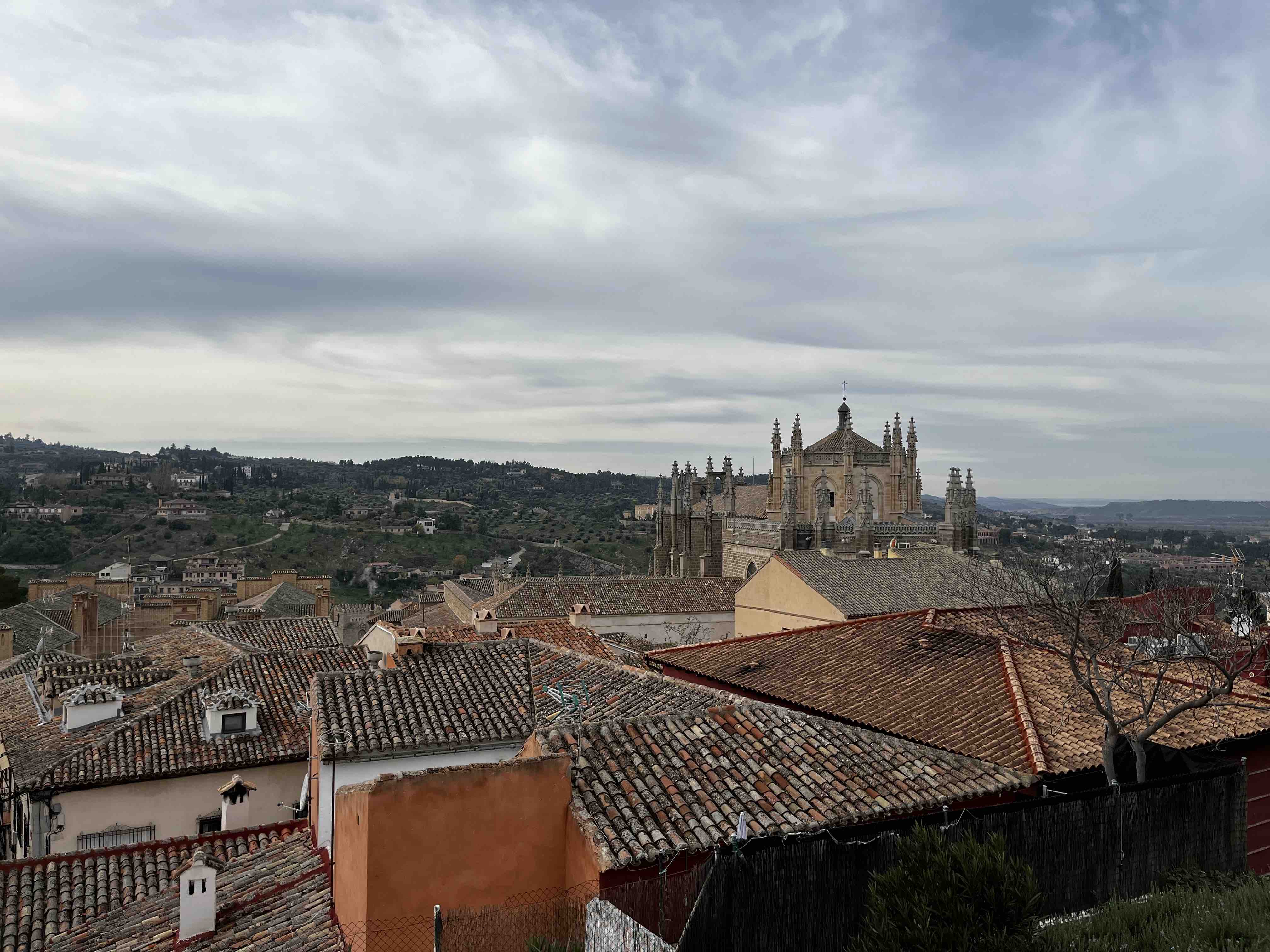
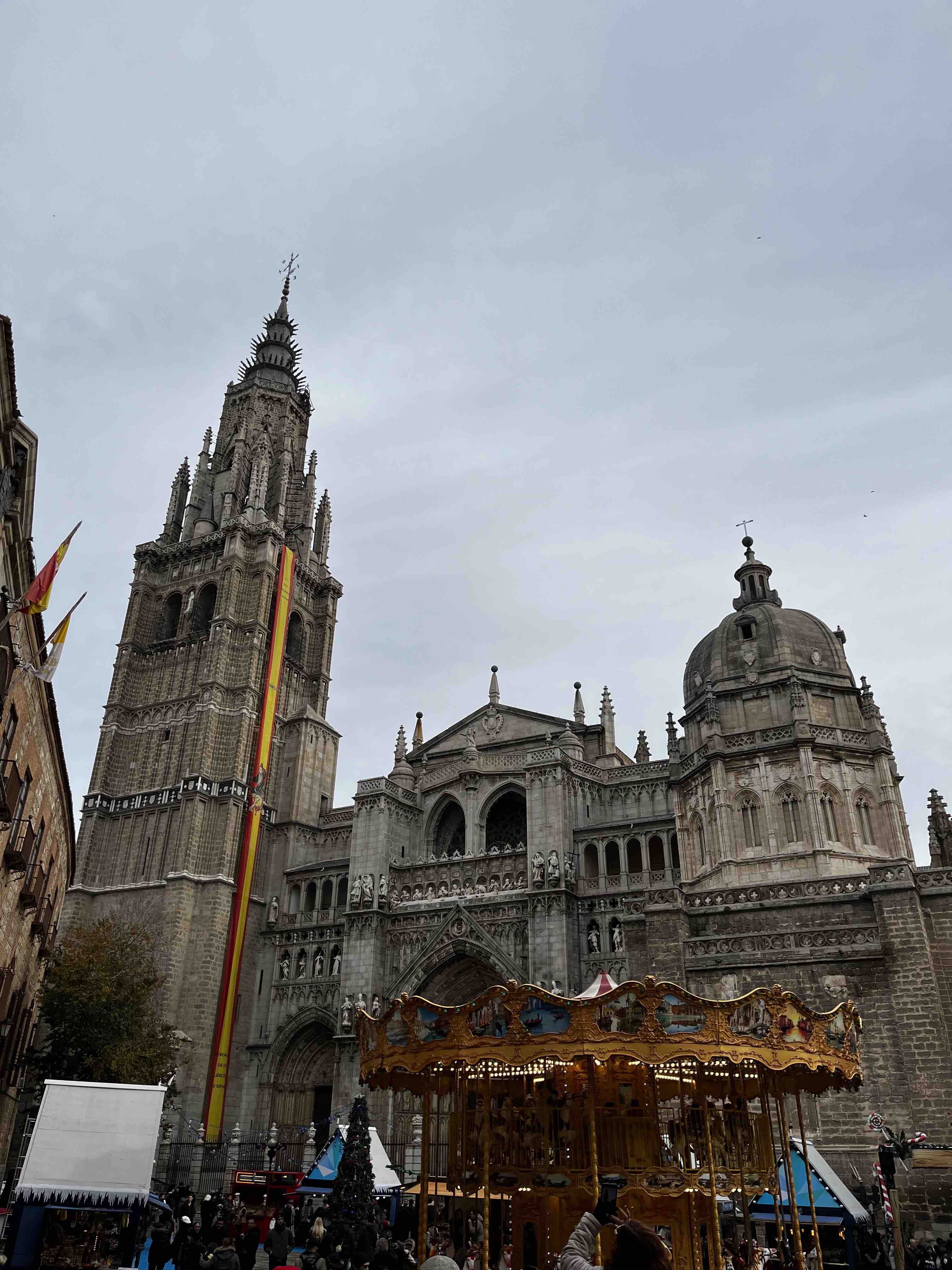
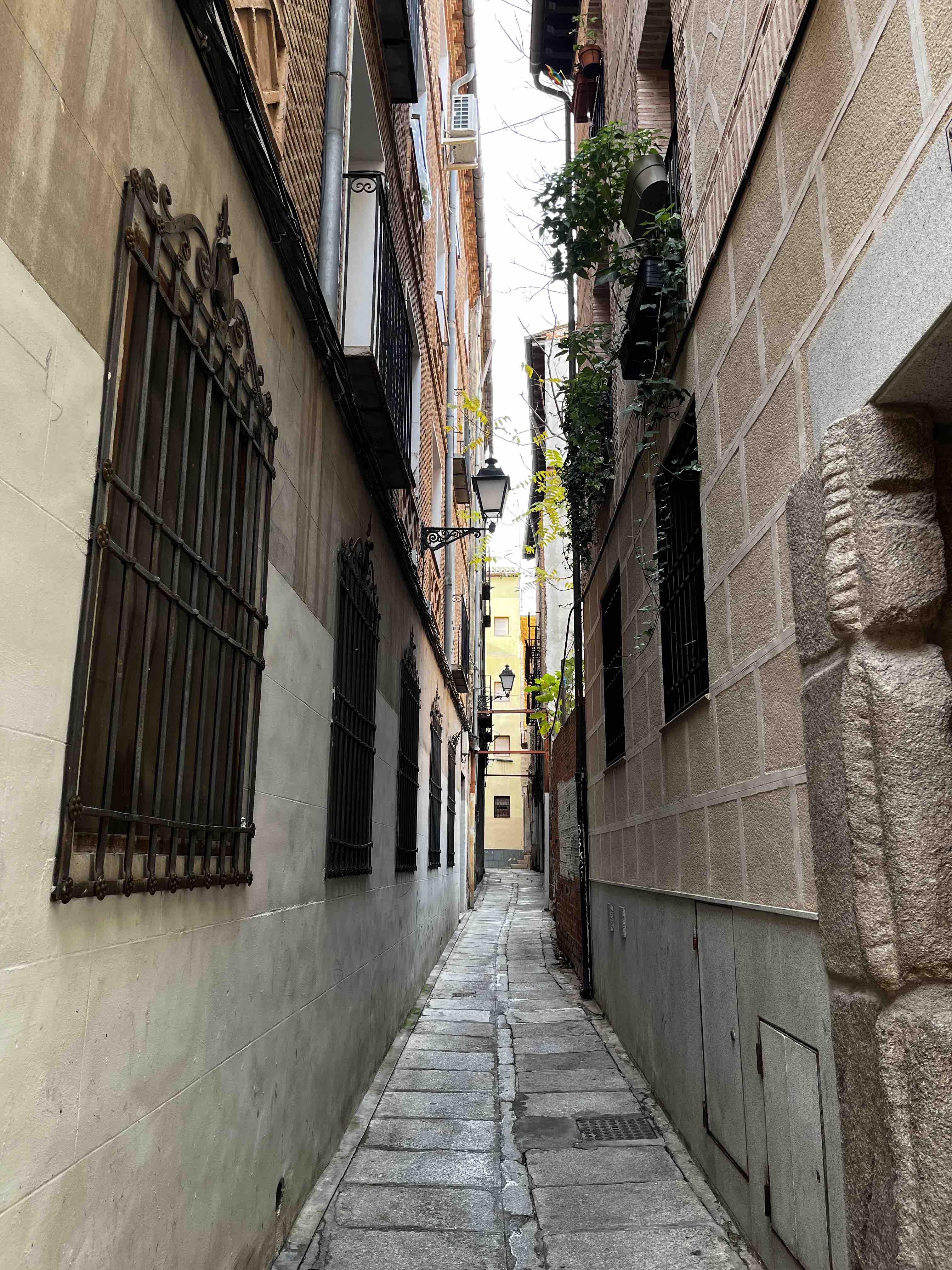
Here are some of the tips I have for travelling during exchange
-
Hostels are a great way to travel around Europe on a budget while also meeting some interesting people. Specific hostel tips include:
- Use Hostelworld to find hostels in your cities. Make sure to look at reviews, distances to attractions/airports/train stations
- Essentials to pack: quick dry towel, eye mask, ear plugs (trust me, you have no idea how loud people can snore until you go to a hostel), a lock and a portable shower caddy
-
Be open to meeting people on your travels. It pays dividends to just go up to people and say “Hi, I’m ____, what’s your name?” and starting a conversation. I have learned loads about people’s perspectives on the world, gotten some great advice on travelling and have joined some impromptu adventures with randoms I’ve met. Most of the people I have met are from hostels, walking tours or other random tours that I have been on, where people are already vetted and seem trustworthy
-
”Free” walking tours are a must-do thing in Europe. Many of the cities have interesting history that can be fully enjoyed by walking around. I have learned a crazy amount from these tours. I would especially recommend getting walking tours from locals as they often have a very unique perspective and have tons of insider knowledge on the best places to grab food/drinks, things to see, places to avoid, etc. For example, my walking tour guide in Sevilla told me about some great tapas bars that only locals go to. These walking tours do often ask for a tip at the end of the tour (often €10-15 is enough), so be sure to have cash handy.
-
While public transport and trains are often quite hyped up in Europe, don’t forget to also check out cheap flights! They are often much faster and can be cheaper at times. That being said, trains here run very efficiently and smoothly
- Usually, inter-country travel is cheaper to do on flights but intra-country is cheaper on train
-
Banking: before you go on your exchange trip, try to get a credit card that has no foreign exchange fees. Usually, these cards are quite generous with travel rewards (which you will get plenty of on exchange) and have fair conversion rates. If you can’t get such a card, go with Wise.
-
Phone plans: Vodafone is a pretty decent option since its data plans are very generous, but it will require having a Spanish phone number. You can also use Airalo for cheap data plans as you travel around different countries.
-
Try to lightly plan attractions 2 weeks in advance before you start travelling. Really famous attractions can be booked out quite a while ahead of when you want to travel.
-
On solo travelling: I personally had a great time solo travelling. Solo travelling enables you to travel at your own pace and do things you like without having to compromise with your friends or family. You also meet a lot more people when you are solo travelling as you have no other choice. However, I would recommend travelling with friends first; you learn a lot about travel planning by doing that. Once you feel confident, try doing day trips by yourself. If you feel confident after that, then feel free to solo travel!
- Many people might be scared of doing solo travelling because they are scared of being lonely. I would strongly recommend trying it out at least once! It is not as lonely of an endeavour as you would think as you naturally will start conversations with other people on your travel. My entire Madeira trip was done solo and I met at least 3-4 strangers a day, sharing lunches with them or doing crazy activities together. I don’t often go out of my way to introduce myself to strangers, but solo travelling really helped me grow up in this regard.
- Solo travelling is a great way to develop your ability to be alone. I strongly feel that we have lost this touch in our hyper-connected world where we are constantly calling and texting friends. Being disconnected from others can teach you a lot about yourself.
-
Friend group travelling: one of the great parts of exchange is travelling with friends; exploring cities with your buddies is incredibly exciting and fun. However, there are a couple of tips that I have when travelling with friends:
- Understand your friends’ travel styles: I am fortunate that most of my friends have a similar travel style for me, i.e. planning out in advance but also being flexible enough for random events that happen. Some people that I have met are not like that and like to travel to places without a plan. Some people like to explore nature, while others like to chill and frolick in a city. There are no right or wrong ways to travel, but travelling with people who have different styles than you can be a source of conflict. Make sure you know how others like to travel before you embark on an adventure together
- Establish a leader: having 1 person book most activities/accommodations is a lot better than having multiple people be responsible for individual parts of a trip. This leader can take carte blanche actions and change the planned itineraries at a whim if they find something cool without having to coordinate with others. Our friend group cycled the leader position on each of our trips so no one person was burned out
.png)
-
Burnout: Almost all of my friends who were on exchange travelled so much to the point where we had burnout. Make sure to allot times in your schedule where you are not travelling and are taking it chill in your home city.
-
Plan around weather: I planned my trips such that I would visit colder areas of Europe in September and October and warmer areas of Europe in November and December, maximizing the amount of trips where I had good weather.
-
You will quickly learn the skill of packing lightly while on exchange. A travel backpack alongside some packing cubes are great purchases to make before you go on exchange, as you can travel around with only one bag.
UC3M + Madrid specific tips
- Spanish visas: This was the most stressful part of my exchange process. Spanish bureaucracy is notorious for its inefficiency and I was unfortunately caught up in it a few weeks before I left. I would recommend starting the visa process as early as possible (May is a great time to start if you are starting your exchange in September).
- My story if you care: I was working out of New York when I was applying for my student visa. I got false information from the Spanish embassy that I could apply for a student visa in New York. I asked for an appointment in May and got an appointment in June in New York to submit my application documents. When I showed up in June, the officers rejected my application and told me to apply in Toronto. I then had to send my documents (including my passport) to my parents in Calgary who could then apply on my behalf (the Spanish consulate in Toronto only accepts Canada Post letters so I couldn’t directly apply from New York). Once my application got into Toronto by June 30, I didn’t hear a single response until 2 weeks before I had to leave from New York. During this time, I was stressed out that I wouldn’t get my passport back before I had to leave the US so I was plotting how to return to Canada without my passport (which, by the way, is fully possible and legal). Fortunately, my parents got my passport just a few days before they were scheduled to fly out to New York to visit me. The actionable piece of advice from my story is to apply to the appropriate Spanish consulate in Canada if you are a Canadian student 4 months before you go to Spain.
- As soon as you settle in Madrid, you should try to get the Abono Joven card, which gives you unlimited metro, bus and Cercanias (commuter trains) access for just €8/month. You will need to set up an appointment which may take a week, so book one as soon as you arrive
- To survive without the Abono Joven card, you can buy a metro card with 10 tickets at any metro station and you can buy a Renfe card at a Cercanias station to get to the outskirts of Madrid.
- Learn Spanish: I definitely had Anglophone hubris when I moved to Europe thinking that everyone in Europe can understand English. This is not true in Spain; not many people know English. I had done only 2 weeks of Duolingo and a month of Dreaming Spanish, so I didn’t know much before I landed in Valencia. Knowing Spanish would have definitely helped me navigate around Madrid. My friend learned Duolingo for about 90 days before the trip and even he had a bit of difficulty navigating. Try to build up a functional knowledge of the language before you come. I would recommend using Duolingo or Dreaming Spanish.
- If you don’t care too deeply about class attendance, live in Madrid, not in Leganes or Getafe. Madrid is a lot more lively, Leganes and Getafe are suburbs
- Housing: finding housing in Madrid can be tough and I have heard of a few people with some housing horror stories. Here are some tips to help
- Where to find housing: Spotahome is a pretty decent service and I have had a good experience using it to find houses.
- When to find housing: This is the most important piece of housing advice. Try to look out for housing 3-4 months in advance. A friend of mine tried to find a place 1 month in advance and had a pretty tough time finding a place.
- Transit: try to live within a 10-minute walk to a metro train station. You also want to have <40 minute commute to UC3M and ideally <1 hour commute to the airport. Living near Line 6 and Line 1 is quite useful; they are convenient to commute to Cercanias stations or to the airport
- Where to live: I would recommend living near Atocha or Chamartin, as these areas have a lot of transit connectivity. I would not recommend living near the centre of Madrid (Sol, Gran Via, Lavapies) as the housing quality might not be as great and it can be quite loud since its more touristy. I personally lived in Pacifico and had great connectivity with transit and an easy time getting to UC3M and to the centre of Madrid
- Clubbing culture: Madrid is well-known in all of Europe for its nightlife, especially its clubs. Unlike North American clubs, Madrid clubs often pickup around 2am and most clubbers party until 4-5am. Furthermore, clubs are active all days of the week, even Mondays. Some clubs to visit include Kapital and Toy Room

- Mercadona: Mercadona is the grocery store to use in Spain. It is well organized, clean and has everything you need.
- Course registration: UC3M course registration is very different than UWaterloo registration. At UC3M, you are given a week to put in your course selections and you will know as soon as you submit your courses whether you got the course or not. I would recommend students to be prepared to submit their course offerings as soon as the registration window opens.
- Gig services: For food delivery services, Glovo is quite popular (note: a Spanish number is needed for this). For car ride services, Bolt and Cabify are a lot more popular than Uber.
- Siesta culture: I was making fun of this before I went to Spain and then I realized that it is an actual reality in this country. Stores and restaurants are often closed between 2pm to 5pm. This could disrupt some of your plans, so be aware!
- Student orgs: This is a really important tip that I didn’t use enough. In Europe, exchange is very popular as you are often paid and supported by EU nations to study abroad for a semester; this is known as the Erasmus program. To facilitate connections with Erasmus students, schools often have ESN programs, which non-EU students can also join. These ESN programs are a great way to meet other exchange students. Another program is Citylife Madrid, which is not university affilitated. Both programs host parties, events and even trips! My friend went on a tour to Morocco with Citylife Madrid as well as day trips to Alcala de Henares and Toledo with ESN. In our semester, ESN even hosted a Portugal trip. I would strongly recommend making use of these opportunities as its a great way to meet other exchange students; UC3M doesn’t do a great job of connecting exchange students.
Exchange regrets
While I think I made the most of exchange, there were a couple of things that I wish I did differently that would have made my experience even better.
- New friends: I didn’t spend much time cultivating friendships with the Spanish and other exchange students that I met during my semester in UC3M. I didn’t realize that this was important to me until I heard a friend talking about his experiences in Scotland, where he was living with a bunch of exchange students in his dorm and became quite close with his neighbours. Dorm culture wasn’t even a consideration when I was making my exchange decisions, but I would definitely have thought about it had I known before. This is one of the tradeoffs you make when you prioritize travelling during exchange; your local connections can suffer.
- Not learning Spanish well enough: I wish I had learned more Spanish before I came to Spain and also kept up with my Spanish pace of learning by talking to more locals. This also relates to the first point: having Spanish friends could have kick started my learning process. While I am still proud of the level of Spanish that I am now at, I wish I spent more time preparing to boost my Spanish before I started exchange.
- Asturias: The likelihood of me returning to Spain is quite low now that I have explored most areas of the country. However, Asturias is a major region I had to leave out as it conflicted with an El Clasico match that I managed to get tickets to. This is a beautiful region of Spain that is nothing like any other part of the country, with green rolling hills, awesome cider and incredible beaches on the Bay of Biscay. I doubt I will have the ability to visit Asturias ever since its quite remote and hard to get to from other parts of the world.
Despite these regrets, I am still incredibly grateful about my time on exchange. I have grown a lot as a person, learned a huge amount about European culture and have had a lot of fun. For anyone considering exchange, I only have two last words of advice: do it.